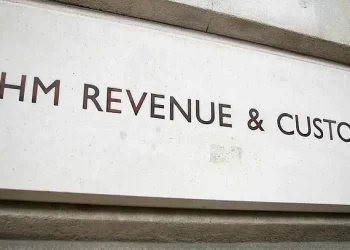Prime Minister Keir Starmer’s first Budget aims to create a sustainable economic future for Britain by prioritizing working families and revitalizing public services. Through economic stability, investment, and reform, the government plans to shift the country toward growth and away from austerity.
A Budget for Britain’s Future
Britain’s economy is at a turning point, and Prime Minister Keir Starmer has declared that his government’s first Budget will focus on creating a stronger, more stable future for working families.
As he put it, “It’s time to choose a clear path.”
This Budget will prioritize economic stability, substantial investment, and practical reform, giving working people a bigger stake in a thriving economy and aiming to repair underfunded public services, particularly the NHS.
Starmer’s plan represents a shift from previous approaches, as he pledges that, unlike austerity measures, this new economic strategy is designed to improve standards of living for British households while also addressing the UK’s long-term fiscal challenges.
Investing in Stability, Reform, and Growth
Central to the Budget’s strategy are three key principles: stability, investment, and reform. Starmer emphasized that only by creating a stable economic environment can Britain invest confidently and effectively in public services and infrastructure.
He addressed the challenges Britain faces, saying,
“This is not 1997 or 2010; these are unprecedented times.”
Despite difficult financial circumstances, Starmer’s government aims to make what he calls “honest, responsible, long-term decisions” to establish economic security.
Proposed Investments in Public Services and Infrastructure
The new Budget signals significant funding toward two critical areas:
- NHS Revitalization: Funding increases for the NHS are on the table, intended to ease pressures on health services and reduce waiting times.
- Infrastructure Investment: Substantial investment in infrastructure, including transport, digital connectivity, and green energy, is aimed at boosting productivity across the UK.
Starmer challenged critics by asserting that “everyone in this country will benefit” from this approach, emphasizing the broad impact of robust investment in infrastructure and healthcare.
The Economic Challenges Starmer’s Budget Faces
To provide a clearer picture of the fiscal challenges ahead, consider the numbers:
| Fiscal Year | Estimated NHS Budget Increase (%) | Infrastructure Investment Target (£ Billion) | Projected GDP Growth (%) |
|---|---|---|---|
| 2024-2025 | 6% | 30 | 1.5 |
| 2025-2026 | 5% | 28 | 1.8 |
| 2026-2027 | 4% | 27 | 2.0 |
With these figures, Starmer hopes to reassure the public and investors alike that his administration is committed to steady, realistic growth.
Starmer’s approach prioritizes long-term growth over quick fixes to best serve British interests through substantial infrastructure goals.
Reforming Britain’s Workforce and Productivity
Beyond funding, Starmer’s Budget seeks to revitalize the British workforce and increase productivity by implementing new job incentives.
This involves:
- Making Work Pay: Measures designed to boost income for working families through progressive tax policies.
- Encouraging Employment: Initiatives aimed at reducing unemployment and filling vacancies, particularly in sectors crucial to public health and technology.
- Cutting Red Tape: A push to simplify regulations that limit private investment, with the aim of encouraging growth and reducing barriers to business expansion.
Starmer summarized this commitment to reform by saying,
“Higher investment, reformed planning, and reduced regulation will help us fix the foundations of this economy.”
The Broader Vision: Britain’s Path Forward
As Starmer outlined, his vision for Britain’s future depends on these core commitments to stability, growth, and reform.
The Budget shifts from austerity, restoring public services and benefiting working people through economic growth and tangible improvements.
He described this Budget as “an economic plan that will change the long-term trajectory on British growth for the better.”
Sources: THX News, Prime Minister’s Office, 10 Downing Street & The Rt Hon Sir Keir Starmer KCB KC MP.









